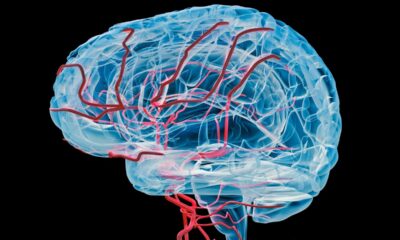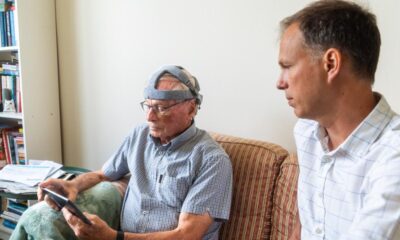Health
Bruce Willis Faces Cognitive Challenges as Caregiver Shares Update

Bruce Willis, the renowned actor, is alive but grappling with severe cognitive challenges as he continues to battle frontotemporal dementia. His wife, Emma Heming Willis, confirmed on August 27, 2025, that while his physical health remains stable, his cognitive abilities are deteriorating. This update came during a preview for an upcoming ABC News special, where she discussed her experiences as his full-time caregiver.
Willis, now 70 years old, was first diagnosed with aphasia in 2022, a condition that affects language abilities. In 2023, further evaluations confirmed he was suffering from frontotemporal dementia (FTD), a degenerative disease impacting the brain’s frontal and temporal lobes. According to the National Institute on Aging, FTD results in significant changes in language, behavior, and movement. Unlike Alzheimer’s disease, which prominently features memory loss, FTD often leads to earlier symptoms related to behavior and communication.
Emma has observed the progression of Willis’ condition closely. She noted that while he remains physically mobile and generally healthy, his speech and comprehension have declined significantly. In her interview, she shared, “The language is going, and we’ve learned to adapt. And we have a way of communicating with him, which is just a different way.” Despite the challenges, she highlighted that moments of recognition still emerge, including familiar laughter and expressions that bring comfort to the family.
The couple’s journey began in earnest when they noticed troubling personality changes in Willis. He became withdrawn, missed family gatherings, and showed diminished interest in once-beloved activities. These behavioral shifts prompted further medical evaluations, leading to the eventual diagnosis of FTD. Emma described receiving this news as abrupt and disorganized, stating, “No plan, no guidance, no hope, just shock.”
At the Women’s Alzheimer’s Movement Forum in May 2025, she candidly expressed the emotional toll of being a caregiver. She spoke of feeling “lost, isolated and scared,” especially as she balances raising their two young daughters alongside caring for her husband. Emma’s experiences will be documented in her forthcoming book, The Unexpected Journey, set for release on September 9, 2025. The book aims to provide support for others facing similar challenges.
The public attention surrounding Willis’ diagnosis has increased awareness of FTD, a condition that is less commonly understood compared to other forms of dementia. As she continues to speak openly about their situation, Emma is contributing to an essential conversation regarding caregiving and the complexities of neurodegenerative diseases. “It’s hard, but I’m grateful. I’m grateful that my husband is still very much here,” she remarked, underscoring the resilience of their bond amid adversity.
Dementia affects nearly 7 million people in the United States alone, according to the Centers for Disease Control and Prevention (CDC). The dialogue surrounding Willis’ situation sheds light on the realities of living with such diseases and the pressing need for better understanding and support systems for patients and caregivers alike. As the family navigates this challenging path, their shared moments of clarity and connection remain a source of strength and hope.
-

 World2 days ago
World2 days agoCoronation Street’s Shocking Murder Twist Reveals Family Secrets
-

 Entertainment4 months ago
Entertainment4 months agoKate Garraway Sells £2 Million Home Amid Financial Struggles
-

 Entertainment3 months ago
Entertainment3 months agoAnn Ming Reflects on ITV’s ‘I Fought the Law’ Drama
-

 Health3 months ago
Health3 months agoKatie Price Faces New Health Concerns After Cancer Symptoms Resurface
-

 Entertainment3 weeks ago
Entertainment3 weeks agoCoronation Street Fans React as Todd Faces Heartbreaking Choice
-

 World3 weeks ago
World3 weeks agoBailey Announces Heartbreaking Split from Rebecca After Reunion
-

 World5 days ago
World5 days agoKevin Sinfield Exceeds Fundraising Goal Ahead of Final Marathons
-

 Entertainment3 months ago
Entertainment3 months agoCoronation Street’s Carl Webster Faces Trouble with New Affairs
-

 Entertainment4 days ago
Entertainment4 days agoTwo Stars Evicted from I’m A Celebrity Just Days Before Finale
-

 Entertainment3 months ago
Entertainment3 months agoWhere is Tinder Swindler Simon Leviev? Latest Updates Revealed
-

 Entertainment4 months ago
Entertainment4 months agoMarkiplier Addresses AI Controversy During Livestream Response
-

 Science2 months ago
Science2 months agoBrian Cox Addresses Claims of Alien Probe in 3I/ATLAS Discovery




















